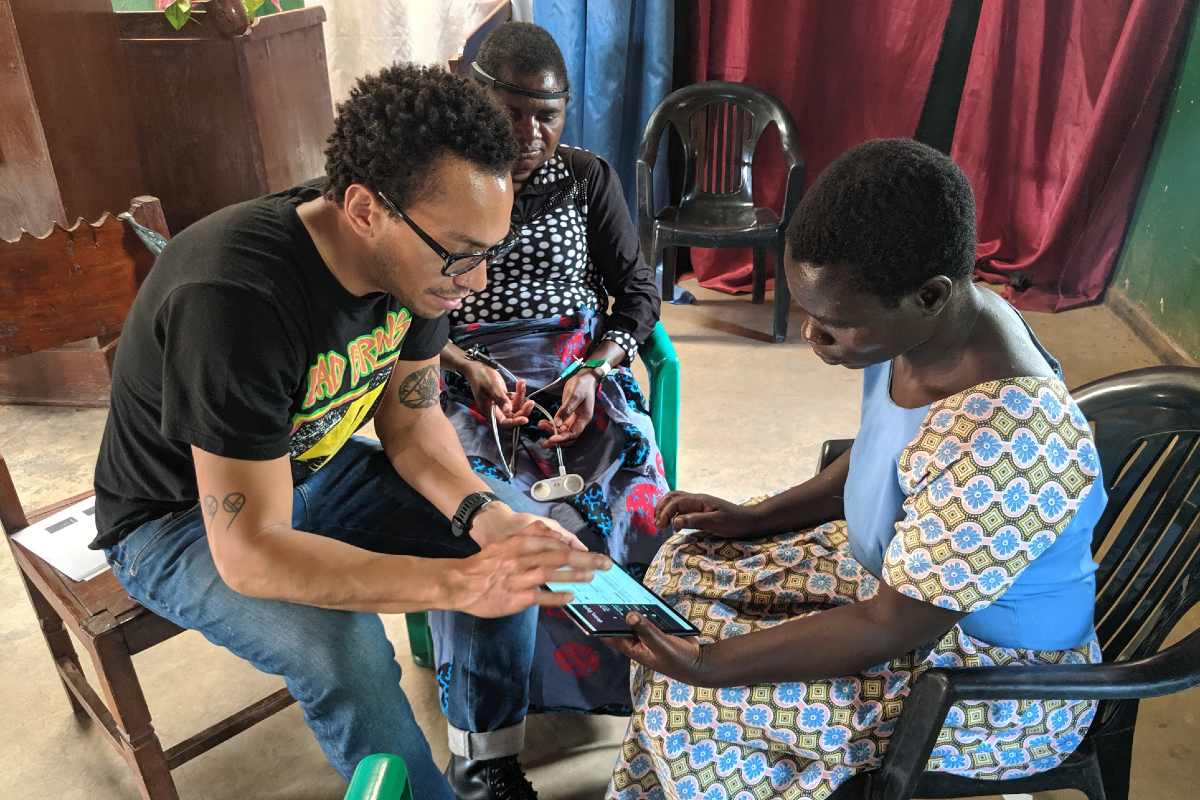
PhD student Daniel Robles is pictured here training a local volunteer on using wearable EEG technology. Image supplied.
University of Alberta graduate student Daniel Robles is bringing the power of wearable EEG technology to an international research study on child development centred in Malawi.
Robles, a PhD student studying under the supervision of Kyle Mathewson in the Department of Psychology, helped to conduct the first phase of a longitudinal study that aims to understand child development and health outcomes by collecting health data. Robles’ area of expertise? Wearable EEG technology.
“This is a development study targeting rural areas in Malawi that are affected by malaria and other health issues. Our ultimate goal is to use data sources such as heart rate and EEG technology to get a rich picture of overall health,” Robles explained. “I developed the EEG protocols for the project.”
Wearable EEG technology is an area of expertise for Robles’ supervisor Mathewson, associate professor of psychology and neuroscience and member of the Neuroscience and Mental Health Institute (NHMI).
“Using EEG, we can record electrical activity from the brain,” said Robles. “From the signals we collect from the EEG sensors we can look at brain patterns related to healthy development. We can also use cognitive tasks to assess attentional processes. From the combination of EEG and other biosensors we can get an in-depth understanding of child development in the Malawi regions we visit.”
The project is a collaboration between the Center for Child Well-Being and Development at the University of Zurich in Switzerland and UNICEF Malawi. With the first phase of the study complete, the research team has submitted preliminary results for publication. Robles, who travelled to Malawi in late 2019, looks forward to returning for the next phase of the project when pandemic travel restrictions mean it is safe to do so.
“Traveling to Malawi was a great experience,” he added. “We visited several villages in the Dowa district on the outskirts of the capital Lilongwe and spent days working with locals and their children. People were truly amazing and friendly. The landscapes are breathtaking and it’s a pretty vibrant but laidback place.”
Curious to learn more about cutting-edge research in the Faculty of Science? Read more stories about our neuroscience research and teaching.